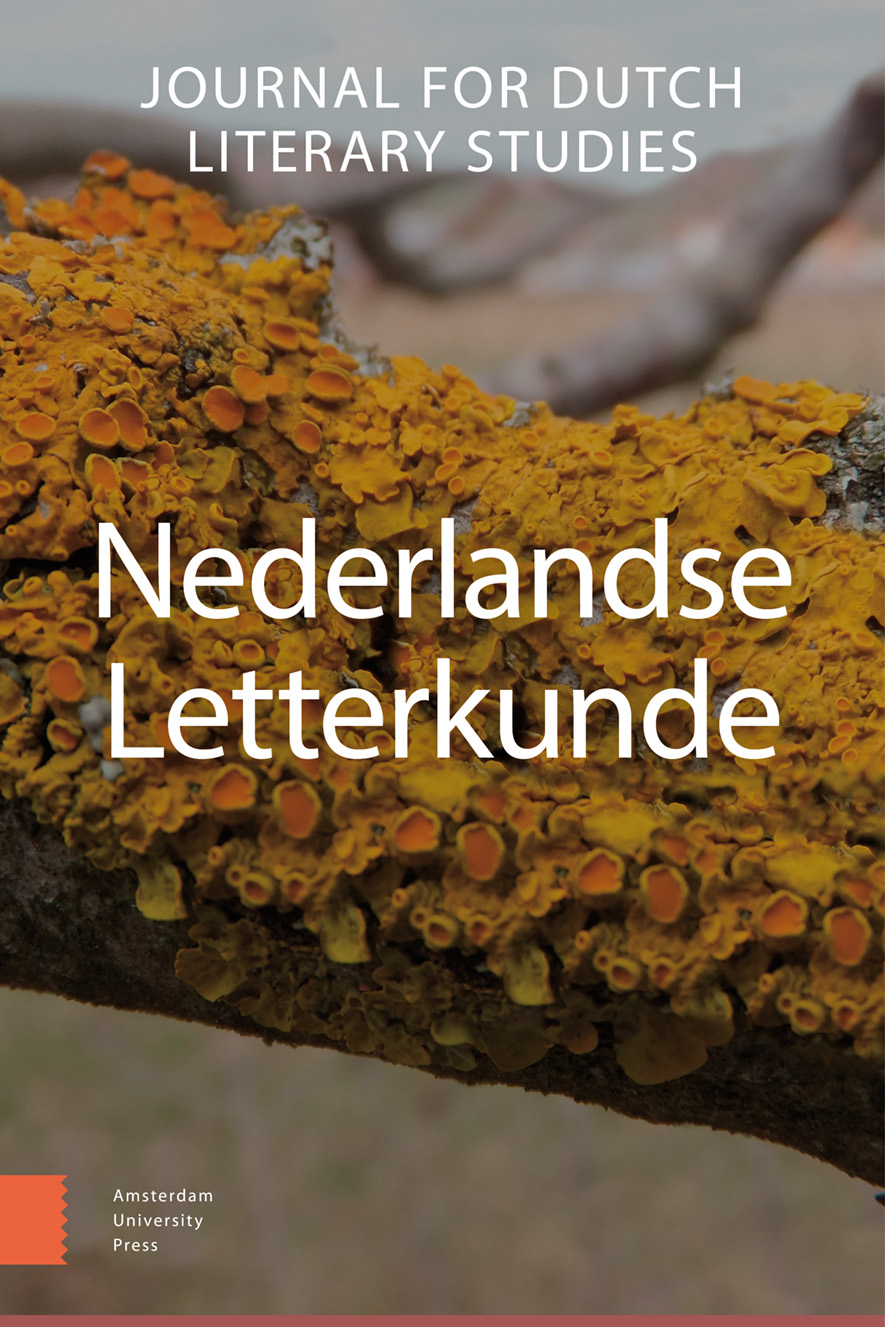-
oa ‘De heiligst denkbare levenswijze’ - De vrijheid, dan wel gebondenheid van menselijk handelen in A.F.Th. van der Heijdens Mim of de doorstoken globe (2007)
- Amsterdam University Press
- Source: Nederlandse Letterkunde, Volume 14, Issue 2, Oct 2009, p. 133 - 154
Abstract
The novel Mim (2007) by A.F.Th. van der Heijden is closely connected with S-ophocles’ Oedipus Rex. This article examines the relationship between the Dutch novel and the Greek drama. It demonstrates that a ‘diegetic transposition’ is involved: Van der H-eijden has transposed the Oedipus theme more or less literally into a late twentieth-century context. His main character Movo / Tibbolt Satink is a latter-day Oedipus who not only kills his father but has three children with his mother into the bargain. The analysis of Mim is brought to a point by asking to what extent voluntary action is involved. Would Movo / Tibbolt Satink have been able to avoid his crimes or was he at the mercy of higher powers? In this connection one could for example think of an unchangeable destiny or of the god Apollo, who plays a key role in the Homo duplex cycle of which Mim is a part. The question elaborated here, i.e. as to whether human actions are free or predetermined, will prove to provide a promising introduction to the work of Van der Heijden.


